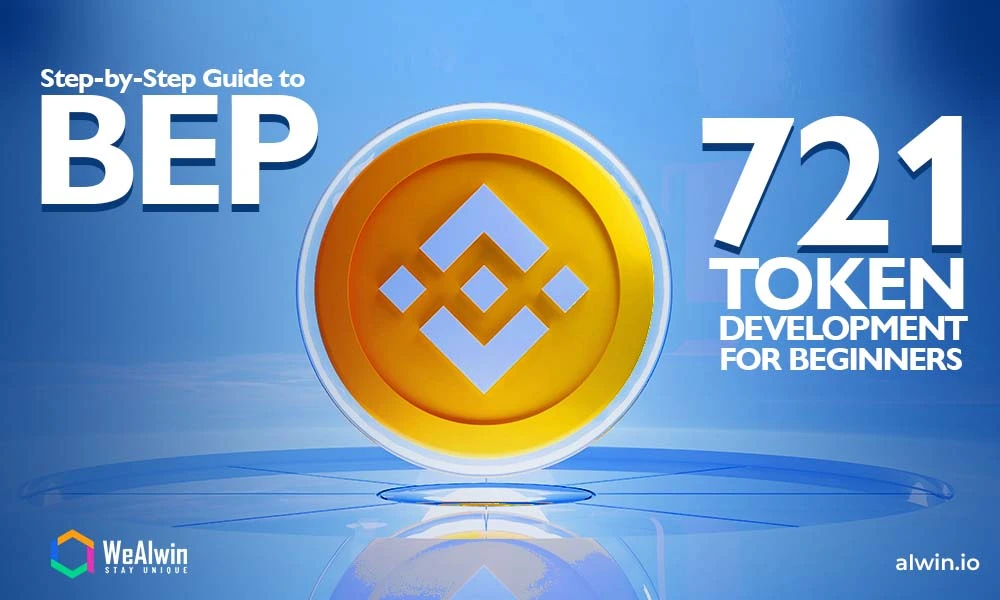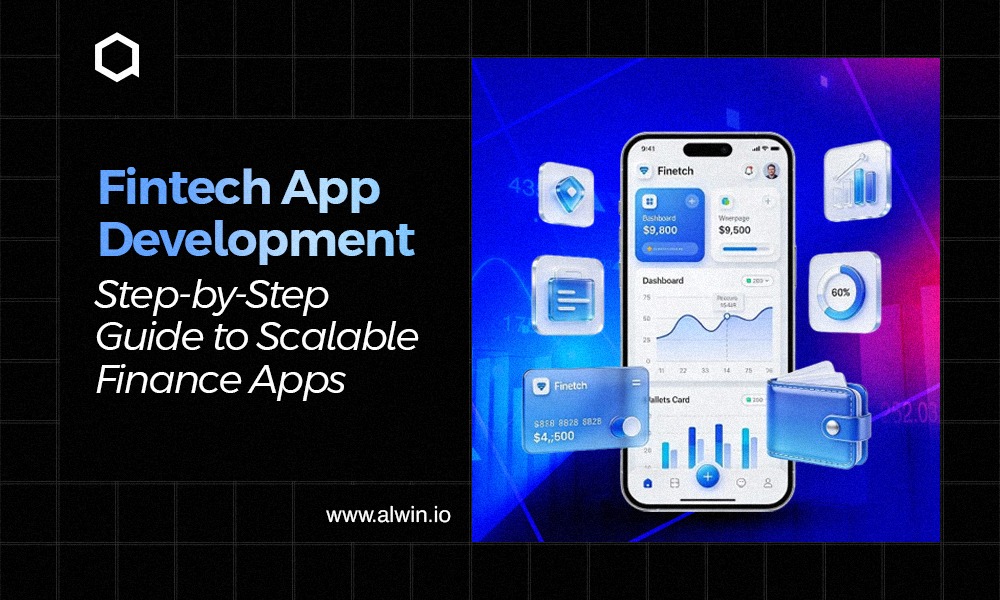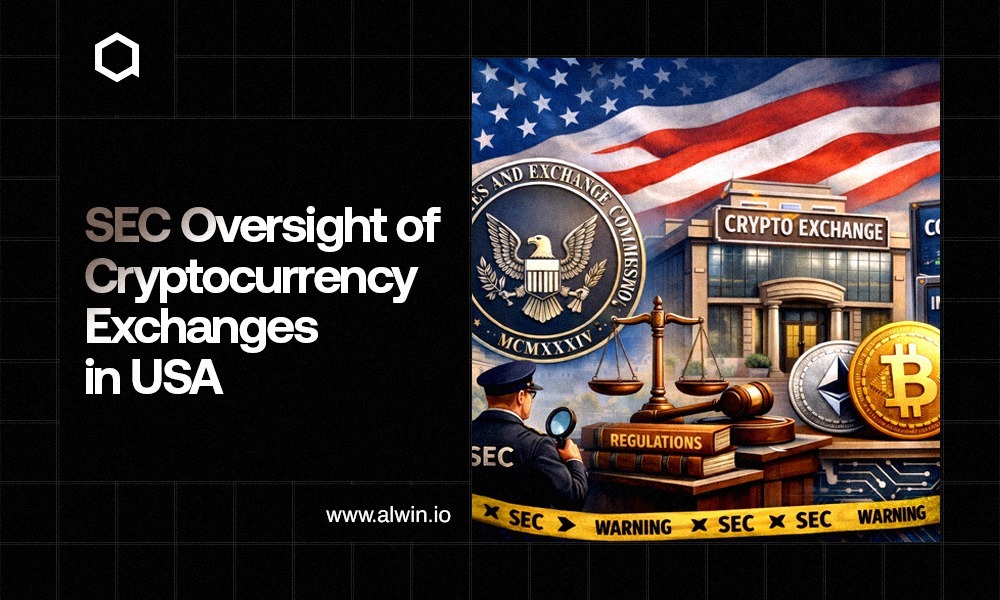What if you could own a piece of digital art that no one else could claim? Or imagine a game where the items you collect are truly yours, not just rented from a platform. Welcome to the world of BEP721 tokens, where digital ownership takes on a whole new meaning.
In a landscape where creativity meets technology, BEP721 tokens are revolutionizing how we think about value and uniqueness in the digital realm. These non-fungible tokens (NFTs) are not just a trend; they're a powerful tool for businesses and individuals, enabling new forms of engagement, investment, and expression.
Are you ready to discover how BEP721 tokens can transform your business or spark your interest in the NFT space? Let’s dive into the exciting possibilities that await!
Understanding BEP721 Tokens
BEP721 is a token standard developed by Binance Smart Chain to create and manage non-fungible tokens (NFTs). It is an extension of the popular ERC721 standard used on the Ethereum blockchain. BEP721 tokens are unique digital assets that cannot be replicated or exchanged on a one-to-one basis like traditional cryptocurrencies.
Definition and Technical Overview
Each BEP721 token has a unique identifier (token ID) that distinguishes it from others, even if they are part of the same collection. This unique ID allows for the tracking and verification of ownership and provenance of the digital asset. The BEP721 standard defines a set of functions and events that enable the creation, ownership, and transfer of NFTs. Some of the key functions include:
- name(): Returns the name of the token
- symbol(): Returns the symbol of the token
- tokenURI(): Returns the URI of the token's metadata
- balanceOf(): Returns the number of NFTs owned by a given address
- ownerOf(): Returns the owner of a specific NFT
Fundamental Characteristics of BEP721 Token
Token Owner is the entity that has control and rights over a specific token. Ownership is a fundamental aspect as it determines who can transfer or manage the token.
Capped Tokens refer to tokens that have a maximum supply limit. Once this cap is reached, no more tokens can be minted.
Mintable Tokens are tokens that can be created (minted) after the initial deployment of the smart contract. This allows for the flexible addition of new tokens as needed.
Burnable Tokens are tokens that can be permanently removed (burned) from circulation. This can be useful for controlling supply and maintaining the token's value.
Black Listing refers to the ability to restrict certain addresses from interacting with the token contract. This can be used for compliance, security, or regulatory purposes.
Benefits of BEP721 Token Development
BEP721 token development offers numerous advantages that can significantly enhance various business models.
Unique Digital Ownership: BEP721 tokens allow for the creation of unique digital assets that can represent anything from digital art to in-game items. This uniqueness fosters a sense of ownership and authenticity that is increasingly valued in the digital marketplace.
Revenue Generation: BEP721 tokens can create new revenue streams through the sale of unique digital assets, whether they are digital art, collectibles, or in-game items. The rarity and uniqueness of these tokens often command higher prices in the marketplace.
Brand Loyalty and Engagement: By offering unique digital assets, businesses can enhance customer engagement and loyalty. This can lead to repeat purchases and a stronger customer base, ultimately boosting revenue.
Cost-Effective Transactions: The Binance Smart Chain is known for its low transaction fees and fast processing times. This makes BEP721 token development an attractive option for businesses looking to minimize costs while engaging in NFT transactions.
Interoperability with Other Platforms: BEP721 tokens are compatible with various platforms and wallets, making it easier for users to trade and manage their NFTs across different ecosystems.
Market Demand: The growing popularity of NFTs has led to increased demand for unique digital assets. Businesses that adopt BEP721 tokens can tap into this expanding market, potentially leading to significant profits.
Key Differences Between BEP721 and Other Token Standards

Minting NFT Tokens through BEP721 Token Development
Minting NFT tokens through BEP-721 token development involves creating unique digital assets on the Binance Smart Chain (BSC). This process allows for the creation, trading, and ownership of non-fungible tokens (NFTs) with distinct attributes and metadata. Here's an explanation of the minting process, followed by examples,
Juggernaut
Juggernaut offers a customizable NFT ecosystem, combining an NFT marketplace with DeFi features. Users can create and trade NFTs, and even stake them for rewards. The minting process is simple: create an account, design your NFT, and mint it into a BEP-721 token.
BakerySwap
BakerySwap blends a decentralized exchange (DEX) with an NFT marketplace. It supports NFT creation, trading, and staking, and features an NFT Launchpad for creators. Users connect their wallets, create and customize NFTs, and mint them on the platform.
Treasureland
Treasureland is an easy-to-use NFT marketplace that supports various NFT types, from art to music. It offers social features for creators to engage with their audience. The minting process involves signing up, designing your NFT, and minting it into a BEP-721 token.
These platforms simplify NFT creation and trading, making it accessible for creators, businesses, and crypto enthusiasts to leverage the power of BEP-721 tokens on the Binance Smart Chain.
BEP721 Token Development:
BEP721 token development is a powerful way to create unique non-fungible tokens (NFTs) on the Binance Smart Chain (BSC). By following these steps, you can successfully create and deploy a BEP721 token on the Binance Smart Chain.
Step 1: Planning and Designing the Token
Define the Purpose and Use Case
Identify the Use Case: Determine what you want to achieve with your token. Examples include digital art, collectibles, gaming assets, or real estate tokenization.
Target Audience: Understand who will use your token and what they expect from it. This helps in tailoring the token features to meet their needs.
Specify Token Attributes
Name and Symbol: Choose a unique and memorable name and symbol for your token.
Metadata: Define the attributes that describe your token, such as title, description, and image URL. These attributes provide detailed information about each token's uniqueness.
Plan the Tokenomics
Supply: Decide the total number of tokens to be created. BEP-721 tokens are typically unique, so you need to plan each token's uniqueness and scarcity.
Distribution: Plan how and when the tokens will be distributed. This can be through direct sales, auctions, or as rewards for certain actions.
Step 2: Writing and Testing Smart Contracts
Setting Up the Development Environment
Non-Technical Approach: If you're not a developer, consider hiring a blockchain development team or using a platform that provides NFT creation services.
Using Development Tools: If you have some technical support, ensure your team uses the right tools and platforms, such as Binance Smart Chain, to develop and test smart contracts.
Writing the Smart Contract
Using Templates: Leverage existing templates and libraries, such as those provided by OpenZeppelin, to ensure your contract follows industry standards.
Customization: Customize the contract to fit your specific needs, such as defining how tokens are minted, transferred, and managed.
Testing the Smart Contract
Testnet Deployment: Deploy your contract on a BSC testnet to ensure it works as expected before going live.
Functionality Tests: Conduct thorough testing of all functionalities, such as minting, transferring, and burning tokens.
Step 3: Deploying the Token on the Binance Smart Chain
Connect to Binance Smart Chain
Wallet Setup: Use a BSC-compatible wallet like MetaMask to manage your tokens.
Funding the Wallet: Ensure your wallet has sufficient BNB to cover the deployment fees.
Deployment Process
Professional Assistance: If you're not comfortable with the technical aspects, hire a professional or a service provider to handle the deployment.
Using Deployment Tools: If you have technical support, deploy the contract using tools like Truffle or Hardhat.
Verification
BscScan Verification: Verify your contract on BscScan to make it publicly accessible and transparent. This step adds credibility and trust to your project.
Step 4: Post-Deployment Considerations
Managing the Token
Minting New Tokens: Plan how new tokens will be minted and distributed post-deployment. Ensure this process aligns with your initial tokenomics plan.
Burning Tokens: Implement procedures to burn tokens if needed, which can help manage supply and demand.
Security Best Practices
Regular Audits: Conduct regular security audits to ensure your smart contract remains secure against vulnerabilities.
Monitoring: Continuously monitor transactions and activities related to your tokens to detect and respond to any suspicious behavior.
Community Engagement
Building a Community: Engage with your audience through social media, forums, and other platforms to build a strong community around your token.
Feedback and Improvement: Encourage feedback from users and continuously improve the functionality and user experience of your token.
Case Studies of Businesses Successfully Using BEP721 Tokens
By leveraging BEP721 token development, businesses can not only enhance their offerings but also position themselves at the forefront of the digital revolution.
Digital Art Platforms: Several digital art platforms have adopted BEP721 tokens to allow artists to mint and sell their artwork as NFTs. This has empowered artists to reach a global audience and retain a larger share of the profits from their sales.
Gaming Companies: Games built on the Binance Smart Chain have integrated BEP721 tokens to enable players to buy, sell, and trade in-game items. This not only enhances the gaming experience but also creates a new revenue stream for developers.
Real Estate Projects: Some real estate companies are exploring BEP721 tokens to tokenize property ownership. This innovation simplifies the buying and selling process, making it more accessible and transparent for investors.
Fashion Brands: Fashion brands are beginning to issue BEP721 tokens as a way to create limited-edition digital fashion items. These tokens can be used for virtual fashion shows or as collectibles, bridging the gap between physical and digital fashion.
Latest Trends in BEP721 Token Development
The world of BEP721 token development is rapidly evolving, driven by innovative projects. Here’s an overview of the current and emerging trends in BEP721 token development.
1. Integration with DeFi (Decentralized Finance)
NFT Collateralization: BEP-721 tokens are increasingly being used as collateral for loans in DeFi platforms. This allows NFT owners to unlock liquidity without selling their assets.
Yield Farming with NFTs: Some platforms are enabling users to stake their NFTs to earn rewards, combining the benefits of DeFi and NFTs.
2. Enhanced Metadata and Utility
Dynamic NFTs: Unlike static NFTs, dynamic NFTs can change based on certain conditions or events. For example, an NFT representing a sports player could update its stats in real time.
Utility-Driven NFTs: More projects are creating NFTs with specific utilities, such as access to exclusive content, event tickets, or virtual goods in gaming environments.
3. Environmental Sustainability
Green NFTs: There is a growing emphasis on creating environmentally sustainable NFTs. Developers are exploring energy-efficient consensus mechanisms and carbon offsetting strategies to reduce the environmental impact of NFTs.
Layer 2 Solutions: Utilizing Layer 2 solutions on Binance Smart Chain to minimize gas fees and energy consumption during transactions.
4. Community and Social Engagement
DAO Integration: Some NFT projects are integrating Decentralized Autonomous Organizations (DAOs) to give token holders governance rights. This enhances community engagement and decision-making.
Social Tokens and NFT Integration: Combining social tokens with NFTs to reward community members and foster a more interactive and engaging ecosystem.
5. Regulatory Developments
Compliance and Standards: As regulatory scrutiny increases, projects are focusing on compliance with local and international laws. This includes implementing KYC (Know Your Customer) and AML (Anti-Money Laundering) procedures.
Token Standardization: Efforts are being made to standardize NFT metadata and smart contract functions to ensure broader acceptance and compatibility.
Final Thoughts
BEP721 token development represents a significant advancement in the blockchain space, The ability to create non-fungible tokens on the Binance Smart Chain opens doors to innovative applications in various sectors, from digital art and collectibles to real estate and gaming. As the technology continues to evolve, staying informed about the latest trends and regulatory requirements will be crucial for leveraging the full potential of BEP721 tokens.
Why Choose Wealwin Technologies for BEP721 Token Development?
Wealwin Technologies stands out as a premier choice for BEP721 token development due to several key factors:
Expertise and Experience: With years of experience in blockchain development, Wealwin Technologies has a proven track record of delivering high-quality, secure, and scalable solutions.
Comprehensive Services: We offer end-to-end services, from initial planning and design to deployment and post-deployment support, ensuring a seamless development process.
Regulatory Compliance: Our team is well-versed in local and international regulations, helping you navigate legal complexities with ease.
Innovative Solutions: We stay ahead of industry trends, incorporating the latest technologies and best practices into our development processes.
Client-Centric Approach: At Wealwin Technologies, we prioritize our clients' needs, providing customized solutions that align with your business objectives.
Choosing Wealwin Technologies, a Token Development Company ensures you receive top-notch service and support, empowering you to capitalize on the opportunities presented by this innovative technology.



